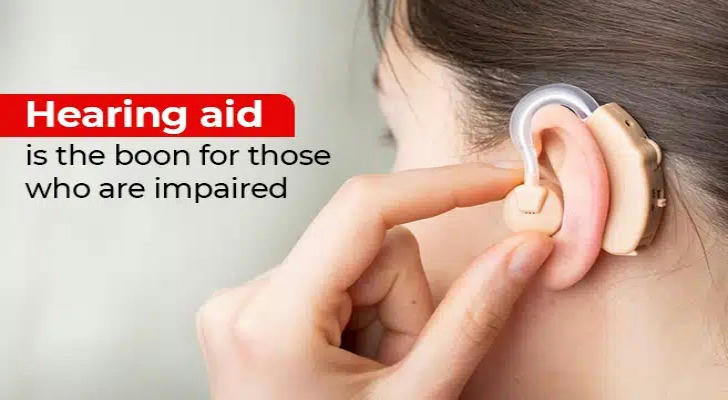Start a new hearing life: Learn about modern hearing aid technology and hear every moment of life
Do you know how smart hearing aids are now?
In the United States, tens of millions of adults are facing hearing loss, and many have experienced misunderstandings and alienation with their loved ones and friends, and even reduced social participation. With the continuous advancement of modern hearing aid technology, people have the opportunity to re-perceive the world, hear every moment of life, and regain confidence in communication.
1. How smart are modern hearing aids?

Do you know how smart hearing aids are now? Modern devices do not simply amplify sound, but enhance your hearing experience in multiple dimensions:
Automatically adjust audio based on audiogram: Hearing aids will optimize audio output in real time based on the user's specific hearing loss;
Intelligent suppression of ambient noise: In noisy places, emphasize human voices and weaken background sounds;
Directional microphone function: Actively focus on the communication sound in front to improve the clarity of conversations;
Bluetooth direct connection to mobile phones and audio-visual devices: Answering calls, listening to music, and watching TV at any time can be clearer and more natural.
These functions allow wearers to obtain high-quality hearing experience in different scenarios without additional external assistance.
2. What are the effects of hearing loss on daily life?
Hearing impairment may be caused by aging, long-term noise exposure, genetics or disease. If not paid attention to in time, it will bring many troubles:
Frequent misunderstandings when communicating with family members;
Feeling embarrassed or gradually isolated in social situations;
Often have difficulties in answering calls and listening to work instructions;
Depression, and even gradually alienating others.
Studies show that untreated hearing loss is closely associated with cognitive decline, decreased emotional health, and reduced life satisfaction.
Real case:
"I always thought people were talking more and more quietly, until I realized I couldn't even hear the doorbell." -- Sandra M, 67, retired teacher She returned to her social circle with hearing aids and re-experienced the joy of communication.
III. How to choose a hearing aid that suits you

When choosing, you should evaluate it based on the following factors:
Type and degree of hearing loss (professional evaluation required)
Usage scenario and environmental noise level (such as office, outdoor or home)
Wearing comfort and appearance preference (BTE, ITE, CIC, etc.)
Brand after-sales service and debugging support (regular maintenance is better)
Properly adapted equipment can help users restore clear communication and make daily life smoother and more natural.
IV. Why do hearing aids help improve overall life?
More than just hearing restoration, newer models of hearing aids can also have a profound impact on life:
- Improve social and communication confidence: No more awkward nodding, more comfortable to deal with;
- Enhance the quality of family interaction: Intimate communication is smoother;
- Improve sense of security: Can sense important prompts such as doorbells and alarms;
- Help maintain cognitive health: Especially beneficial for the elderly, improving memory and concentration.
Real case:
"After retiring, I couldn't hear the navigation sound clearly, but hearing aids helped me return to work and rejoin the veteran community." —— James L, 54, former US Air Force technician
V. How do users of different ages benefit from hearing aids?
Modern hearing aids are not only suitable for the elderly, but are also gradually being accepted and used by more young and middle-aged users. People of different ages can get the following targeted benefits by using hearing aids:
👵 Old people: Delay cognitive decline and improve independence
Studies show that wearing hearing aids can help delay Alzheimer's disease and other types of cognitive decline. Clear hearing can also enhance the sense of security and control of life for the elderly, such as going out alone, listening to doctor's advice or interacting with grandchildren.
👩 Middle-aged people: Maintain workplace efficiency and reduce communication pressure
Middle-aged people at the peak of their work may face communication misunderstandings, missed meetings and other problems if they do not intervene in time due to hearing loss. Hearing aids can effectively alleviate such troubles and enhance concentration and reaction speed in the workplace.
👧 Teens and young people: Integrate into social circles and enhance self-confidence
Young people with hearing loss due to genetic or congenital factors often retreat because they can't hear clearly. Equipped with suitable hearing aids not only improve learning and communication efficiency, but also avoid inferiority complex and help them better integrate into school and social environments.
